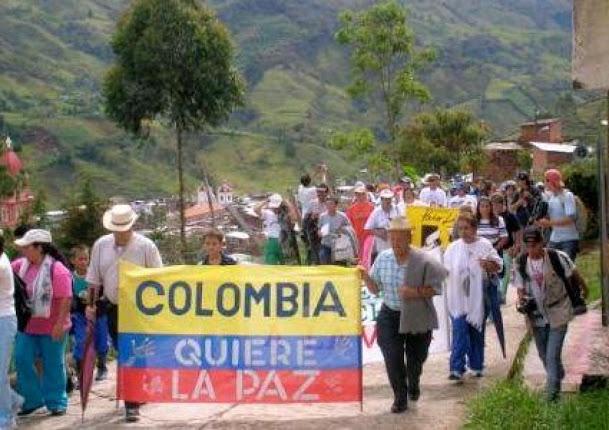
On 16 November the Colombian government suspended peace talks with the Revolutionary Armed Forces of Colombia (FARC) in Havana following the capture of Army Brigadier General Ruben Dario Alzate on the same day. FARC captured Alzate in civilian clothes along with a corporal and a lawyer, deep in their own territory at Las Mercedes near the city of Quibdo, Choco. He was captured in response to continued state attacks on FARC supporters. Alzate is the highest ranking military officer ever made a prisoner of war in Colombia. In sharp contrast to the Colombian government’s continued practice of killing FARC members whenever possible, the release of the prisoners was negotiated soon afterwards. Alzate and his escorts were released on 30 November.
The remaining two of the six areas of discussion in Havana on which there has yet to be an agreement are the disarmament process and the implementation of the peace deal. The demobilisation of the M-19 guerrilla group, then the second largest revolutionary guerrilla organisation in Colombia, in March 1990 did not prevent the assassination of its presidential candidate a month later. Luciano Marín heading the FARC negotiating team is well aware of the long and bloody history of assassinations directed at the working class leadership by the Colombian ruling class, in particular the land owners and drug cartels. Between 1986 and 1990 over 5,000 civilians of the Patriotic Union campaigning in elections and reflecting the political platform of FARC were assassinated, despite state promises to allow free elections. FARC cannot allow the same butchery to be used against any political parties again as a result of the present talks.
On 18 November FARC said that it could not continue with the talks while there was no truce. Despite constant FARC offers, Santos has refused to a truce until an agreement is reached in Havana. A FARC spokesperson explained: ‘Every day, in different locations throughout the country or abroad, President Santos reiterates the order to attack FARC with all the power of the state… and this is in spite of the peace talks which are taking place in Havana… Without a bilateral ceasefire, that which the president terms ‘rules of the game’ cannot apply only to the state forces.’ Consequently FARC attacks against infrastructure as well as military targets have intensified in the last months.
A massive rescue operation in Choco’s dense jungle terrain was launched after Alzate was captured. The army had offered a 100m peso (£29,307) reward for information leading to a rescue. On 22 November Santos tweeted that the FARC had provided the coordinates to the pick-up zone to collect the prisoners. The International Red Cross is involved and Santos agreed a localised 48-hour ceasefire from 29-30 November to allow the release. FARC released two other soldiers taken as prisoners of war in eastern Arauca department two weeks before on 25 November. Talks are likely to restart in December, but whether Santos will stop the attacks on FARC and Colombian peasants remains to be seen.
Alvaro Michaels




